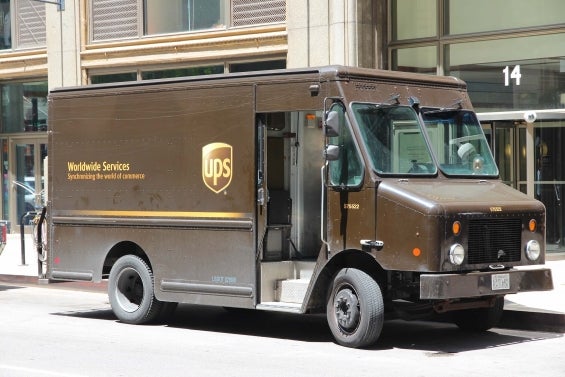Headline News
Teamsters Local 25 Wins Arbitration Case Against UPS

On April 12, an arbitrator ruled in favor of Teamsters Local 25 in a case involving a UPS package driver who was injured and not permitted to work despite being released by his doctor. The arbitrator found UPS in violation of Article 20, Sections 2 and 3 of the National Master Agreement and awarded retroactive pay for John Perry, the driver involved in the case.
“This is a significant decision by the arbitrator because it addresses an issue that many of our locals have encountered when it comes to injured UPS members,” said Sean O’Brien, Director of the Teamsters Package Division and President of Local 25 in Boston.
Perry, a package delivery driver, injured his shoulder while lifting a heavy garage door in late 2014. He was on a Workers’ Comp leave of absence and, after physical therapy did not improve the injury, his shoulder was operated on in April 2015.
A few months later, Perry’s doctor cleared him to return to work without restriction. But instead of allowing him to work, UPS referred him to another healthcare provider. Following a medical examination, the health specialist found no specific reason that Perry could not perform his job duties. Nevertheless, the specialist said that more information was needed.
After being told he had to submit to yet another evaluation, Perry consulted with Local 25.
“We contacted the company and requested an impartial examination as per Article 20, Section 3 of the agreement,” O’Brien said, referring to the agreed-upon procedure when the company and union doctor disagree about an employee’s ability to return to work.
But UPS refused to agree to the third-party evaluation, so Local 25 filed a grievance on Perry’s behalf which went to arbitration. Prior to the arbitration it was determined that Perry could return to work, but he went for nearly six months without working after he was initially told by his doctor that he could resume work.
“Article 20, Sections 2 and 3 of the parties’ National Master United Parcel Service Agreement sets forth a clear and unambiguous process for an employee who has been released by his/her doctor to return to work,” Arbitrator Mark M. Grossman wrote in his decision. “The contract simply does not give the company more than three days to examine the grievant.”
He added that UPS violated the contract by not allowing Perry to return to work after his doctor released him and refusing to proceed to a third doctor.
The arbitrator ordered UPS to pay Perry retroactively, covering the period from when his doctor released him to work to when he was actually permitted by the company to return to work.
“After fighting the company on this issue for quite some time, we are pleased that we were finally able to get this Teamster brother what he was owed. This case clearly establishes that there is no wiggle room for UPS when it comes to its obligations and the rights of injured employees returning to work,” O’Brien said.